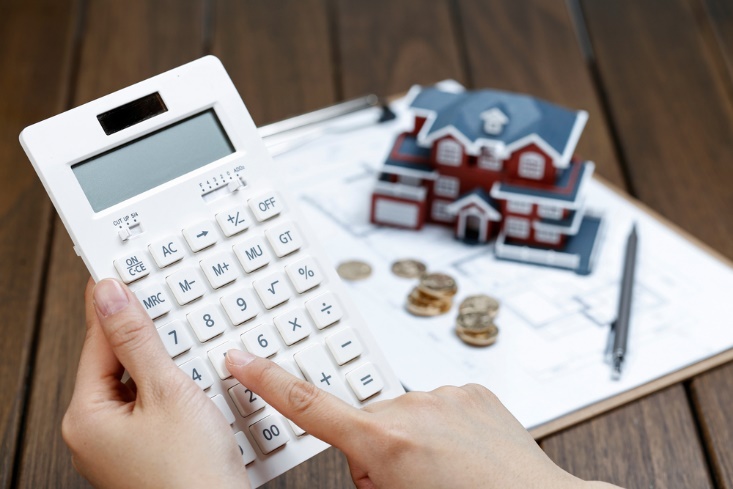
How to Prepare for a Successful Move to Denver: a Step-by-Step Guide
Moving to a new city can be both exciting and overwhelming. Denver, known for its vibrant culture, stunning natural beauty, and thriving job market, is

It is common to wonder if you can sell your house with a second mortgage. According to the National Association of Realtors, although 90% of home buyers take a 30-year mortgage, most sell within the first 10 years.
Sometimes, the homeowner takes a second mortgage to refinance, cash out on equity, or renovate the house.
Since second mortgage interest rates are much lower than credit card rates, some homeowners opt to borrow money against the equity of their house.
Selling a house with a second mortgage can pose some challenges, depending on the type of mortgage and the outstanding loan balance.
First, selling and closing costs may be higher than your home equity, requiring you to pay them out of pocket.
Secondly, second mortgages, such as refinance mortgages, can restrict selling within the first few years of refinancing.
Below is a look at considerations to make when selling a house with a second mortgage and steps to follow when selling.
Most refinance mortgage lenders impose an owner occupancy period or prepayment penalties on their house, even in the case of cash out refinancing. You must stay in the house for a certain period before selling it.
In most cases, the owner occupancy period is three to six months, but it can take longer. This restriction discourages homeowners from taking a refinancing loan and using the property primarily for investment purposes.
Selling your refinanced house before this period has lapsed can result in being charged with mortgage fraud.
On the other hand, prepayment penalties prevent you from selling the house too soon after being refinanced.
Most lenders stipulate one to two years; otherwise, you will be charged a percentage of the loan balance or a flat fee. Since lenders rely on interest to make money, they miss out on their return on investment if you sell too soon.
Therefore, if you want to sell a house that has been refinanced, wait until the stipulated time for primary residence occupancy or penalties has lapsed. If you have a good reason for wanting to sell before the specified time, talk to your lender to see if they can give you leeway.
Nevertheless, you will need to pay off the house at closing to be able to transfer the title deed to the new buyer. In addition, there are selling and closing costs to be met.
For both types of loans, you will need to pay the entire loan balance at closing the sale of the house. You will also have to pay the balance on the existing mortgage.
However, if the house has lost equity between taking the home equity loan or HELOC to sell, you will have to pay out of pocket or take a bridge loan.
Like refinance mortgages, some home equity and HELOCs lenders impose a prepayment penalty if your sell the house too soon.
Unlike other types of mortgages, you own the title of the house as the initial mortgage is fully paid for. Therefore, you have used the home equity to take a reverse mortgage to support your basic living expenses.
You can sell the house whenever you want with no penalty. The only caveat is that you must pay off any amount owed to the lender, including accrued interest and mortgage fees.
Since the home has already built equity, you can pay off the debt from the sale proceeds in most cases. Then you can downsize or enter into a lease agreement and put the rest of the money towards your estate.

As discussed above, check if there are prepayment penalties and owner-occupancy requirements on the mortgage and if the stipulated time has lapsed. If there are none, or the time has lapsed, proceed to sell the house. Otherwise, hold off until the time is right or negotiate with your lender.
When you are ready to sell, contact all the lenders and get a payoff quote. This enables you to know the exact amount you owe the bank and to plan your sale process appropriately to ensure you make enough to pay it off or plan for contingencies.
Aside from the amount owed to the lenders, selling and closing costs can be quite expensive. The main selling costs include staging, deep cleaning, decluttering, and marketing.
While closing costs include real estate agent commission, taxes such as prorated property tax, transfer tax, excise tax, capital gains, escrow fees, title insurance, and seller concession if any.
There are different strategies for determining the value of the house. The first option is to hire a real estate appraiser in your area. They will assess your house according to its total property size, square footage, the number of bedrooms, amenities, upgrades, curb appeal, location, and more.
The appraisal report will indicate the estimated value of the house. You can set your sale price at the appraisal value or slightly above or below.
Alternatively, have your real estate agent conduct a comparative market analysis (CMA) to establish how much your house would sell for in the housing market.
CMA uses data on the recent sale of similar houses in your area to establish the best price. Also, there are some free home value estimator tools online that you can use. Ultimately, it is best to use multiple methods to reach the most accurate value.
Use the estimated value amount to determine if your house has equity. To calculate the equity, subtract the amount owed to lenders—as indicated in the payoff quote—from the home’s value.
If you have equity, compare it to your estimated selling and closing costs to determine if it is enough to cater to them. If it is not, consider alternative ways of paying for these costs.
Your options include paying out of pocket if you have some disposable income or savings, bridge loans, credit card loans, or seeking payment assistance for closing costs.
If your house has negative equity, such that the sale proceeds cannot pay your mortgage balance, request your lender to sell the house through a short sale.
You can sell to a cash buyer, by yourself, or through a real estate agent. Each strategy has its pros and cons and may be best suited for specific circumstances.
Selling to a cash buyer is quick and convenient. You do not have to hire a real estate agent; you can sell the house as is if it has issues. However, cash buyers often negotiate a lower offer price than the house’s fair market value.
On the other hand, real estate agents bring a wealth of expertise in the real estate market to enable you to position the house to sell fast and maximize its value. On the downside, their service comes at 3-6% on the house’s sale price.
Once you have decided on which method to sell the house, prepare it, put it on the market, or contact your buyer directly.
Assess the offers you get to determine the most suitable one. Then, proceed to close the sale. Pay off your debts and closing costs from the proceeds.
You can sell a house with a second mortgage. However, there are major considerations you need to keep in mind. For example, if there are restrictions for selling stipulated by your lender, if your house has equity, the prevailing market conditions, etc.
If there are no restrictions, you can sell your house as long as you settle the debt owed on it fully. Selling strategies include selling through a real estate agent, FSBO, or to a cash buyer.
USEFUL RESOURCES:
Can I Sell My House Before Paying Off the Mortgage?
If I Can’t Pay Mortgage, Can I Sell My House?
How to Sell a House With a Second Mortgage In Colorado
Can I Sell My House on Land Contract With a Mortgage?
Can You Sell a House With a Reverse Mortgage?
Can I Sell My House If I Have a Reverse Mortgage?
Can I Sell My House If Im Behind on Payments

WeBuyHousesinDenver.org is a cash for houses company and we are experts at buying houses in Denver and all of Colorado. Our mission is to give the people of the Mile High city the best solution to sell any house. When you sell your house to us there are:
This is how selling a house in Denver should be!
Fill out the form to get your no-obligation cash offer today.
The latest real estate news, forecasts, insight, and advice are brought to you by the leading authorities in the Denver housing market. We have ears and boots on the ground in the Mile High reporting the facts. Extensive research goes into all our articles and we gather information from trusted real estate experts, renowned local Denver housing specialists, home buyers, and more. We buy houses Denver and as accomplished professionals with a proven track record, we now want to share our experiences with you. Please enjoy!


Moving to a new city can be both exciting and overwhelming. Denver, known for its vibrant culture, stunning natural beauty, and thriving job market, is
Value add in real estate means finding ways to make a property more valuable. This can include things like renovating, improving operations, or changing how
Colorado Springs is a great location for rental property owners, but even in high-demand rental markets, selling your rental property sometimes makes financial sense. The
We’re a service-focused, home buyer that specializes in helping homeowners get rid of burdensome houses quickly. We are Colorado cash buyers who can buy your house fast with a fair all-cash offer. Imagine an instant online quote to sell as-is, without realtors and on your timeline! As a house buyer that’s what we offer. Therefore, if you need to sell your house fast and need a trusted professional home buying company look no further because we buy houses fast for cash.
We Buy Houses In Denver, 1337 Delaware St, Denver, CO 80204